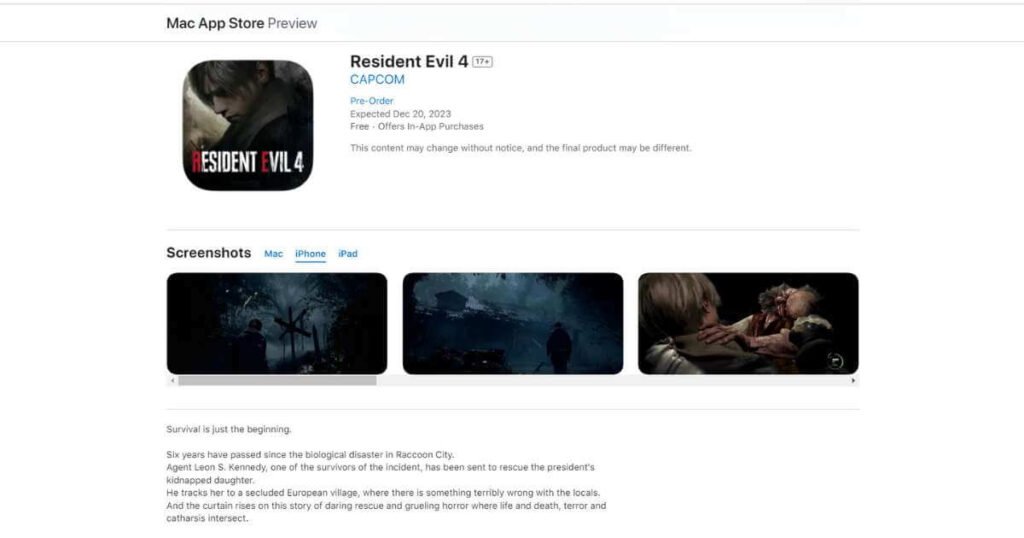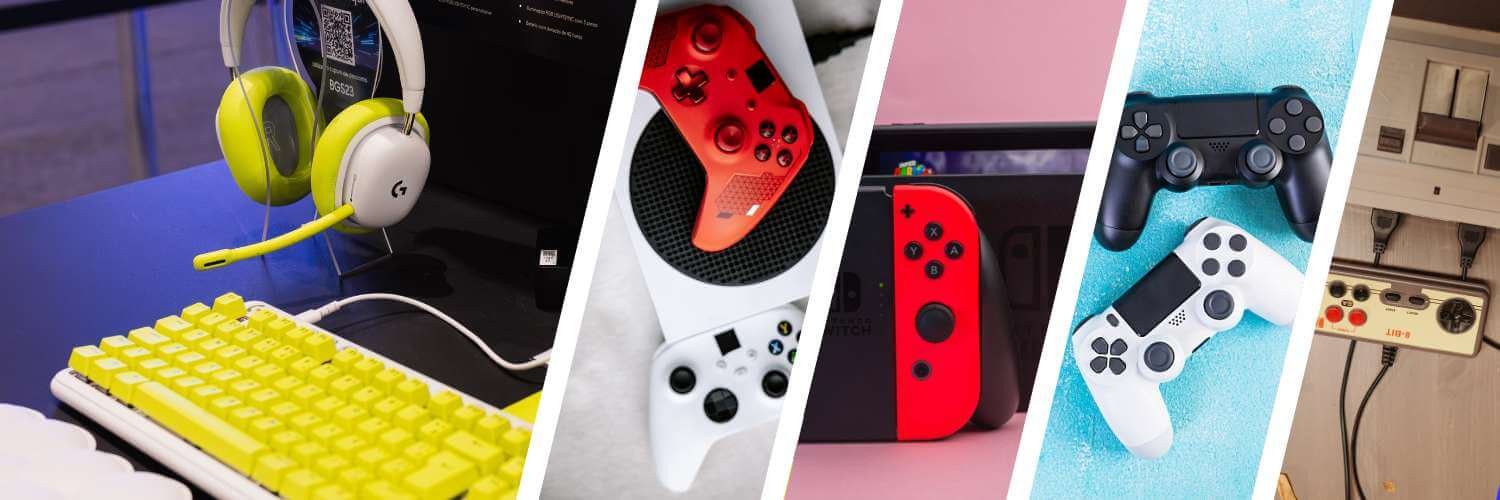It’s a tale as old as time: PC gamers versus console gamers. While this topic isn’t as hotly debated as it was 20 years ago, everyone still has their preferences. That being said, it’s easy to question why you should buy a console these days. Some people may even wonder if consoles are still relevant.
Most people probably own a laptop, home computer, or other piece of tech capable of running games. Additionally, there are multiple newcomers to the gaming field, such as the Steam Deck and mobile gaming.
With portable options like the Steam Deck, Asus ROG Ally, and Lenovo Legion Go, gamers can take many of their favorite games on the go. Mobile gaming is becoming a serious competitor as well. Apple announced that AAA titles like Resident Evil 4 (Remake) and Assassin’s Creed Mirage will be available for the iPhone 15 series.

Resident Evil 4 is currently available for pre-order on the App Store.
It’s easy enough to play games on a piece of tech you already own, like a laptop or mobile phone. For many players, however, consoles remain a central part of their gaming experience. Here are three reasons consoles are still relevant in 2023.
Console Exclusive Titles
Exclusive titles are becoming a thing of the past, but there are still a few franchises only found on consoles. The frontrunners here are Sony and Nintendo since Microsoft also releases most Xbox games on PC.
Sony (PlayStation) and Nintendo invest heavily in creating immersive experiences on their platforms that keep players coming back for more. PlayStation focuses on action-packed titles like Bloodborne, Ghosts of Tsushima, and Infamous Second Son. Nintendo relies on fan favorites such as Super Mario, The Legend of Zelda, and Pokémon.
Certain exclusive franchises have become legendary over the years and stand the test of time. They have the power to keep old fans captivated and attract new players to ensure the console’s continued presence in the gaming market.
There has also been a recent trend of “timed exclusives,” which makes games available on one console for a set period of time before they are ported to other systems. This tactic rewards loyal fans by allowing them to play the titles first. It also allows developers to reach a different audience by releasing games on other systems at a later date.
Customer Loyalty
Brand loyalty is a big part of why consoles are still relevant and persist in a landscape with so many other options. We are currently in the ninth generation of consoles, and the major players (PlayStation, Nintendo, and Xbox) have released at least four consoles.
Nintendo has released an astounding seven home consoles. Their first console, the Famicom, was introduced in 1983. The company’s iconic characters have been the backbone of its exclusive lineup for decades. Nintendo fans often share an emotional connection with their favorite games. Many of these characters have been a part of their lives since childhood. By continuing these franchises, Nintendo encourages players to remain loyal to their brand and buy their console over the other options available.
The PlayStation console is actually the result of a failed business venture between Nintendo and Sony. Since the release of the original PlayStation, Sony has created a fanbase that values immersive storytelling, stunning visuals, and cinematic experiences. PlayStation gamers appreciate the commitment to excellence in graphics, audio, and unforgettable gaming moments. The Final Fantasy VII Remake announcement is still one of the biggest surprises in gaming history, and it’s moments like these that keep fans coming back to PlayStation.
Brand loyalty often ties players to a particular console, and this creates a distinct culture where fans can bond over shared experiences, creating a community with a sense of belonging.
Hardware
Consoles have always excelled at providing a user-friendly gaming experience. Standard hardware means players don’t have to worry about whether or not they have the right graphics card or processor to play the latest release.
Console owners generally don’t have to worry about assembly or spending extra time tweaking settings. The easy set-up of a home console appeals to a wide range of gamers by offering a hassle-free way to enjoy gaming.
The PlayStation 5 features an AMD Ryzen Zen 2 CPU, an AMD Radeon RDNA 2-based graphics engine with ray tracing acceleration, 16GB of RAM, and a 1 TB SSD. The digital edition retails for $449.00.
The price for a desktop PC with similar specs from HP starts at $939.00; Lenovo starts at $990.00. The cheapest Alienware available is $1,299.00, and its components aren’t comparable to a PlayStation 5. A gaming laptop with similar specs will set you back at least $1,000 dollars (or more).
Playstation 5 vs. PC Price Comparison | |||
 PlayStation 5 $449.00 |  HP $939.00+ |  Lenovo $990.00+ |  Alienware $1,299.00+ |
You could also build a custom PC, but not everyone has the time or knowledge. Even those that do may prefer to opt for an “out of the box” solution due to simplicity.
In a world where technology is constantly improving, consoles have managed to maintain their relevance over the years, and they still hold a special place in the hearts of players everywhere.
Are you a PC or a console gamer? Let us know which platform you prefer and why. No matter how you play – happy gaming!













Add comment